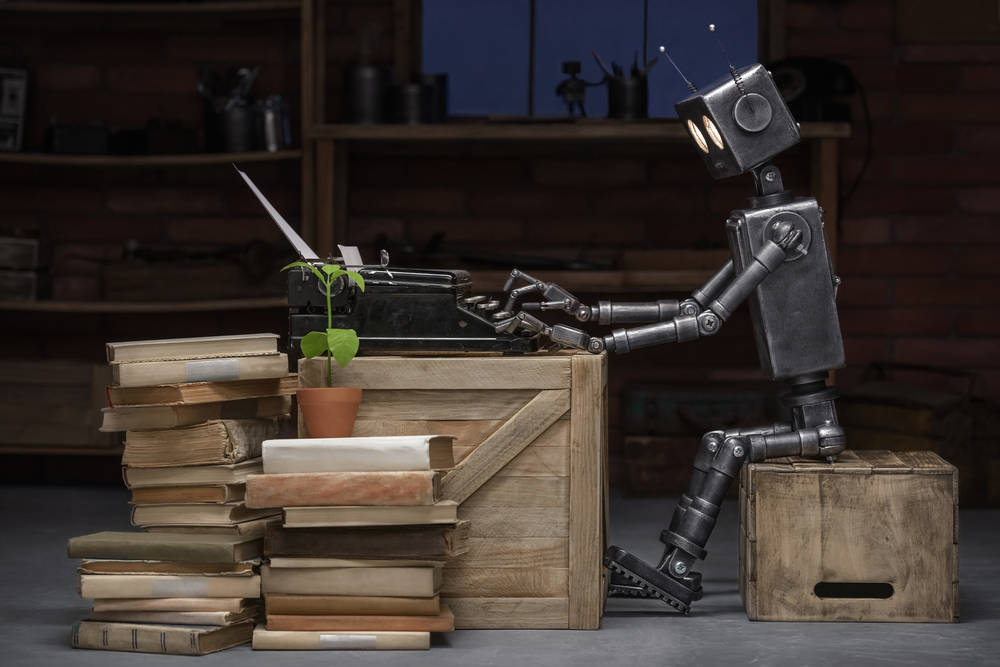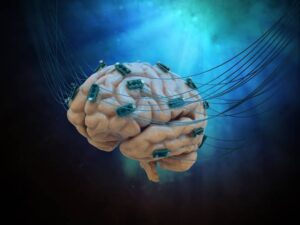
Amazon has given “authors” who crank out books license to "write" and publish up to three tomes every day via its platform, even if they use AI, and asserts that limit protects its customers.
The three-a-day policy applies to Amazon’s Kindle Direct Publishing service and was introduced this week. As far as we can tell, this rule applies to all submissions whether they were disclosed as having been written by a bot or a real person.
"While we have not seen a spike in our publishing numbers, in order to help protect against abuse, we are lowering the volume limits we have in place on new title creations," the web giant said in a statement, that adds some authors can ask for an exception from the policy.
AI-generated and self-published books sold on Amazon have not earned a reputation for quality.
One such volume, which Amazon rated as a bestseller, claimed to detail the full story behind the wildfires on the Hawaiian island of Maui before the blazes were doused and while hundreds of residents were missing. The book was “written” by an author who has left no trace on the digital world other than his books for sale on Amazon, the texts of which include grammatical oddities and other hallmarks of being generated by AI.
Other works sold on Amazon contain counterfeit copy that appeared to have been written by machines but used a human author’s name. Jane Friedman, a popular blogger covering the publishing industry, was shocked to discover that someone had published multiple seemingly machine-made books under her name.
Friedman said she hadn't written those books and believed someone was trying to profit from her reputation by publishing works using her name. Amazon initially ignored her requests to remove the titles, and only responded after she publicly shamed the e-tail giant.
The three-books-a-day rule was announced mere weeks after the tech titan stated that publishers must disclose if digital works they sell via Amazon contain images, text, or translations produced by AI - even if it was later edited by humans. If the content was first created by an author and then edited by a machine, however, publishers do not need to be transparent about using AI tools.
"If you created the content yourself, and used AI-based tools to edit, refine, error-check, or otherwise improve that content (whether text or images), then it is considered 'AI-assisted' and not 'AI-generated.' Similarly, if you used an AI-based tool to brainstorm and generate ideas, but ultimately created the text or images yourself, this is also considered 'AI-assisted' and not 'AI-generated.' It is not necessary to inform us of the use of such tools or processes," Amazon confirmed in its Kindle content guidelines.
The limit of three books a day might hamper some of the publishers who create AI output but is unlikely to stop the practice altogether. A spokesperson from Amazon declined to comment on the record to The Register.
Text-emitting tools, such as ChatGPT, are controversial; they have made it easy for anyone to generate large amounts of prose quickly on any subject. Some authors believe these bots are valuable, since they can help them brainstorm or explore plotlines or generate character profiles for fiction. Others, however, believe that they make writing less authentic, more generic, and can be used to rip off people's styles.
Amazon allows AI-generated books on its platforms, that is clear. But, like human-crafted writing, these works are not allowed to violate copyright, trademark, or privacy laws. Content that forms hate speech or promotes abuse, illegal NSFW acts, or terrorism are strictly prohibited.
"We are actively monitoring the rapid evolution of generative AI and the impact it is having on reading, writing, and publishing, and we remain committed to providing the best possible shopping, reading, and publishing experience for our authors and customers," Amazon said. ®
- SEO Powered Content & PR Distribution. Get Amplified Today.
- PlatoData.Network Vertical Generative Ai. Empower Yourself. Access Here.
- PlatoAiStream. Web3 Intelligence. Knowledge Amplified. Access Here.
- PlatoESG. Carbon, CleanTech, Energy, Environment, Solar, Waste Management. Access Here.
- PlatoHealth. Biotech and Clinical Trials Intelligence. Access Here.
- Source: https://go.theregister.com/feed/www.theregister.com/2023/09/22/amazon_ai_book_publishing_limit/
- :has
- :is
- :not
- $UP
- a
- About
- abuse
- actively
- acts
- Adds
- After
- against
- AI
- All
- allowed
- allows
- also
- altogether
- Amazon
- amounts
- an
- and
- announced
- any
- anyone
- appeared
- applies
- ARE
- AS
- ask
- Authentic
- author
- authors
- BE
- been
- before
- behind
- being
- believe
- believed
- BEST
- book
- Books
- Bot
- bots
- brainstorm
- but
- by
- CAN
- character
- ChatGPT
- claimed
- clear
- CO
- comment
- committed
- CONFIRMED
- considered
- contain
- content
- controversial
- copyright
- Counterfeit
- covering
- create
- created
- creations
- Customers
- day
- detail
- digital
- digital world
- direct
- Disclose
- discover
- do
- earned
- easy
- Ether (ETH)
- Even
- Every
- every day
- evolution
- exception
- experience
- explore
- far
- Fiction
- First
- For
- forms
- from
- full
- generate
- generated
- generative
- Generative AI
- giant
- given
- had
- hate
- hate speech
- Have
- having
- hawaiian
- help
- her
- his
- However
- HTTPS
- human
- Humans
- Hundreds
- ideas
- if
- Illegal
- images
- Impact
- improve
- in
- include
- industry
- inform
- initially
- introduced
- island
- IT
- ITS
- jane
- jpg
- large
- later
- Laws
- left
- less
- Lets
- License
- like
- LIMIT
- limits
- lowering
- machine
- Machines
- made
- make
- mere
- might
- missing
- monitoring
- more
- multiple
- must
- name
- necessary
- Need
- New
- no
- NSFW
- numbers
- Oddities
- of
- off
- on
- only
- or
- order
- Other
- Others
- otherwise
- our
- out
- output
- People
- person
- Place
- platform
- Platforms
- plato
- Plato Data Intelligence
- PlatoData
- policy
- Popular
- possible
- practice
- privacy
- privacy laws
- processes
- Produced
- Profiles
- Profit
- promotes
- protect
- providing
- publicly
- publish
- published
- publishers
- Publishing
- quality
- quickly
- rapid
- rated
- Reading
- real
- record
- refine
- register
- remain
- remove
- reputation
- requests
- residents
- Rule
- s
- Said
- sale
- seen
- sell
- service
- she
- shocked
- Shopping
- Similarly
- since
- sold
- some
- Someone
- speech
- spike
- spokesperson
- stated
- Statement
- Stop
- Story
- styles
- subject
- Submissions
- such
- T
- tech
- tell
- Terrorism
- text
- than
- that
- The
- Them
- then
- These
- they
- this
- this week
- those
- three
- titan
- Title
- titles
- to
- tool
- tools
- trace
- trademark
- Translations
- transparent
- trying
- Ultimately
- under
- unlikely
- us
- use
- used
- using
- Valuable
- via
- volume
- was
- we
- web
- week
- Weeks
- were
- whether
- which
- while
- WHO
- works
- world
- write
- writing
- written
- you
- yourself
- zephyrnet









